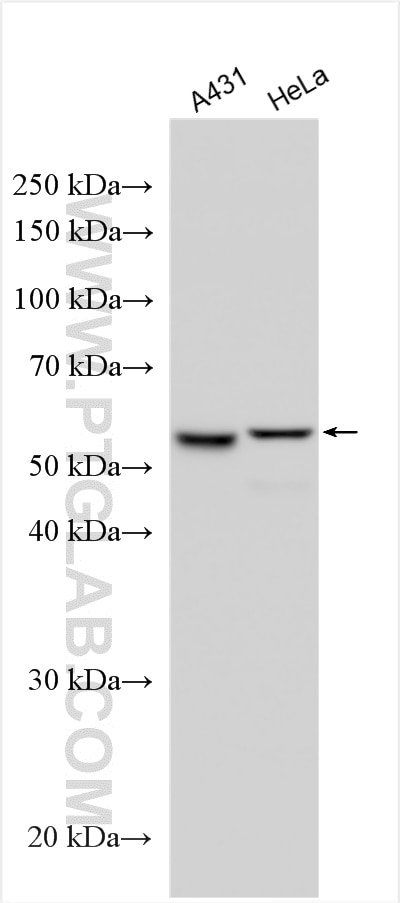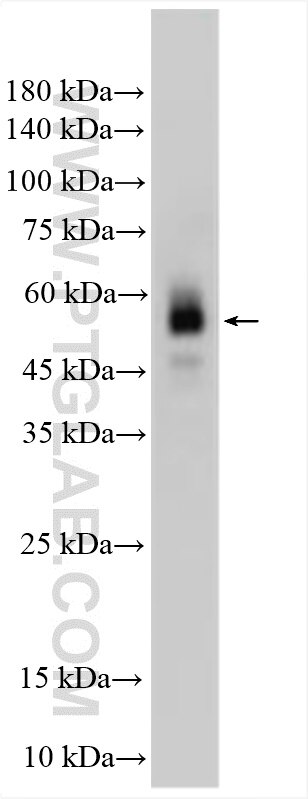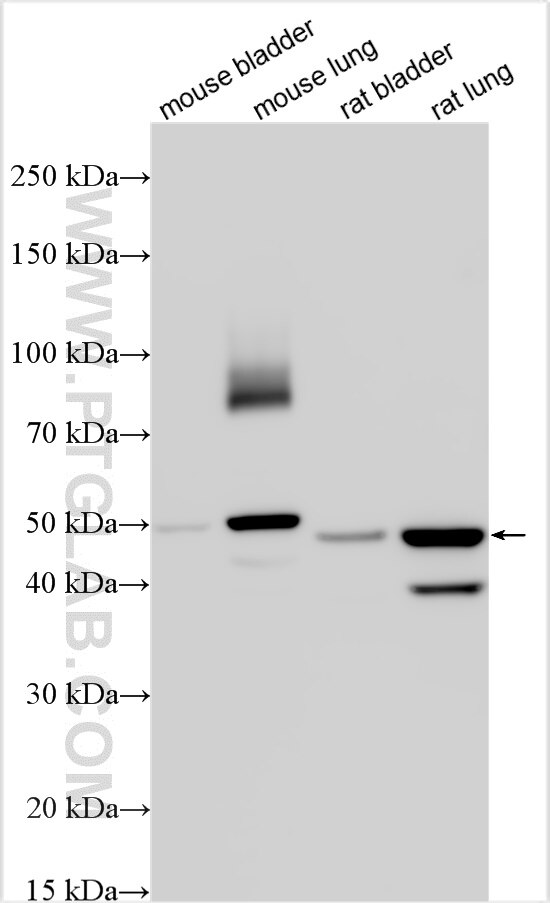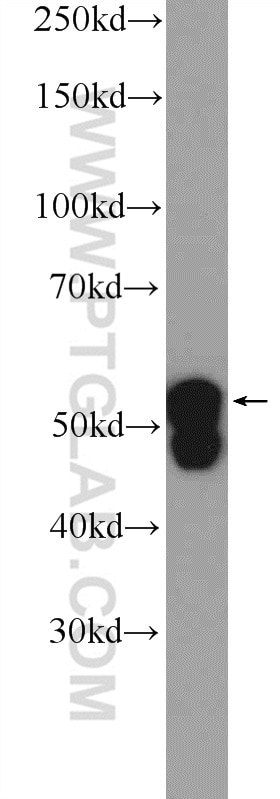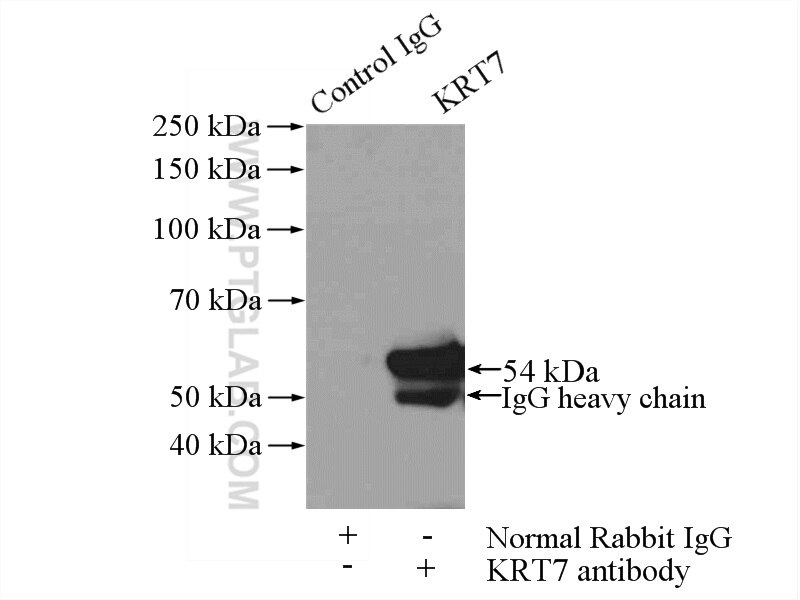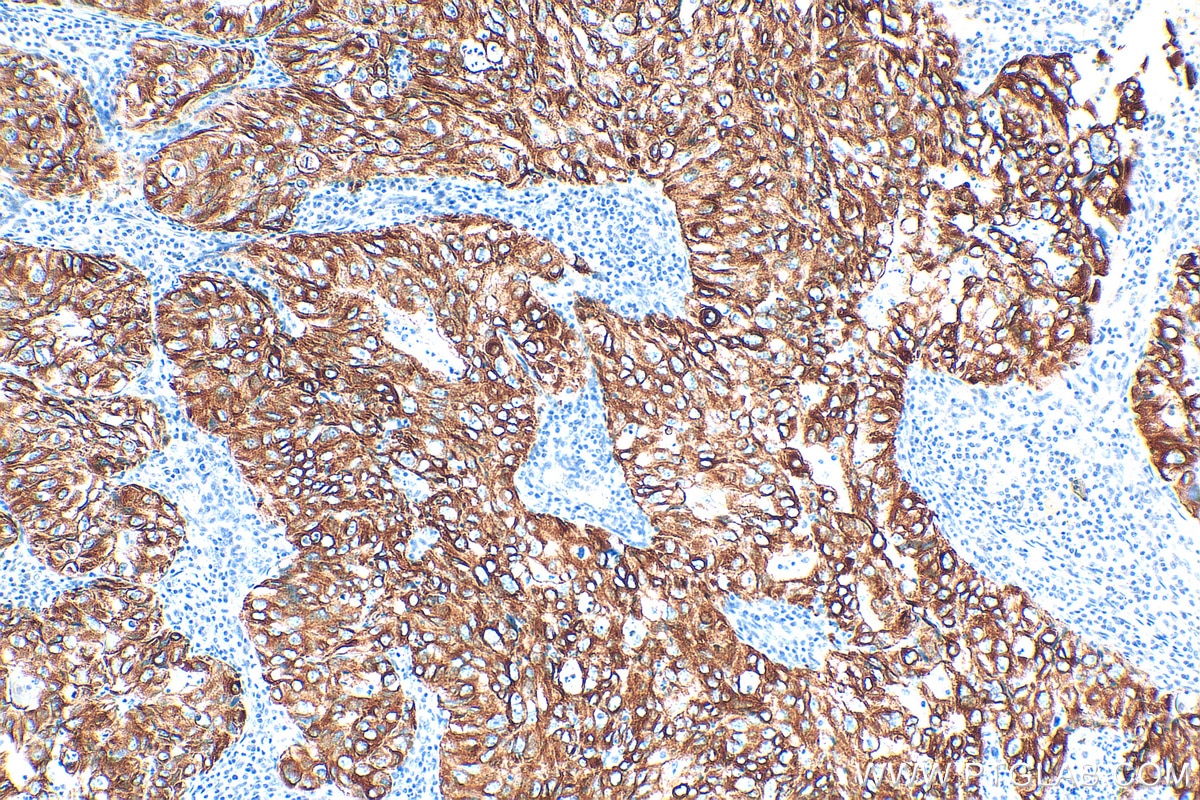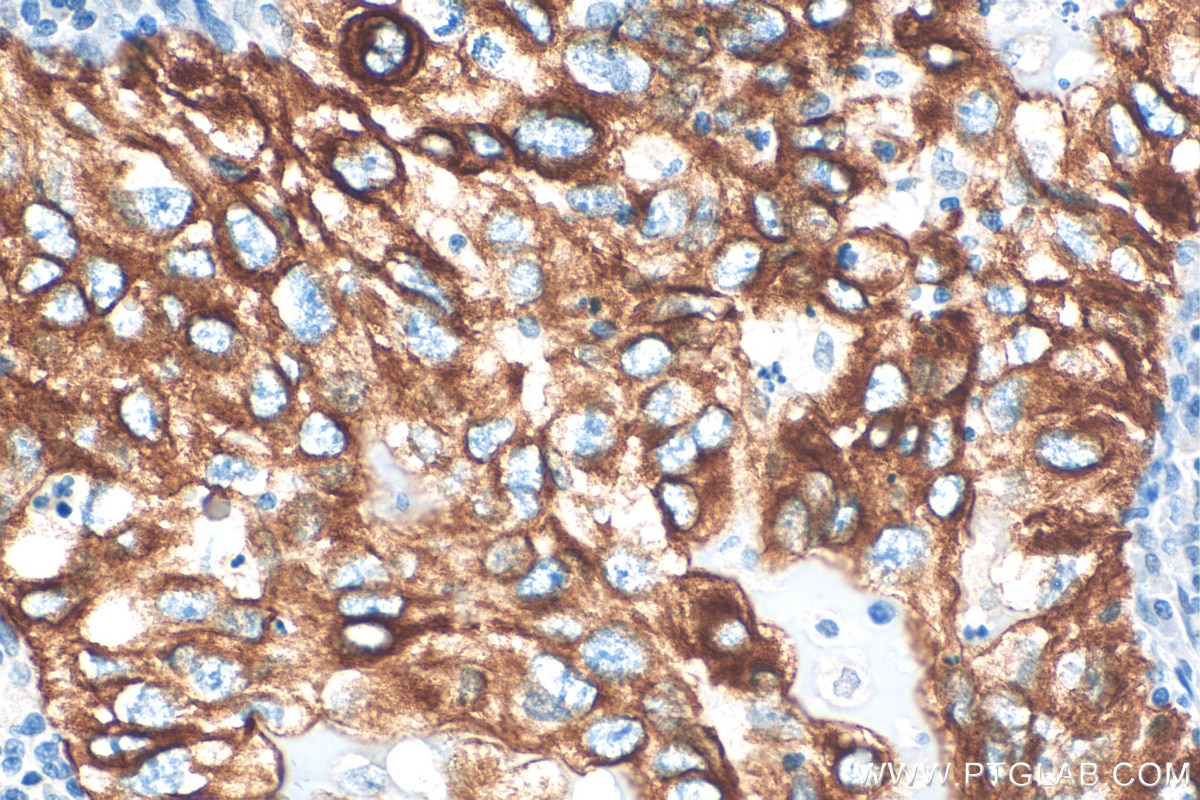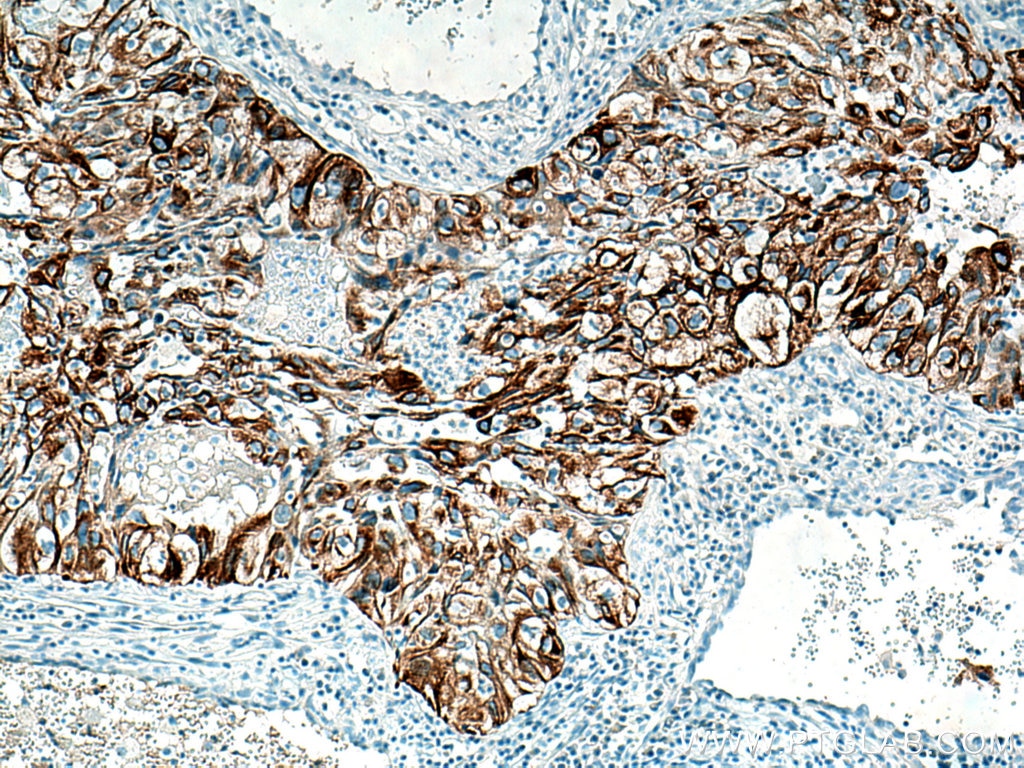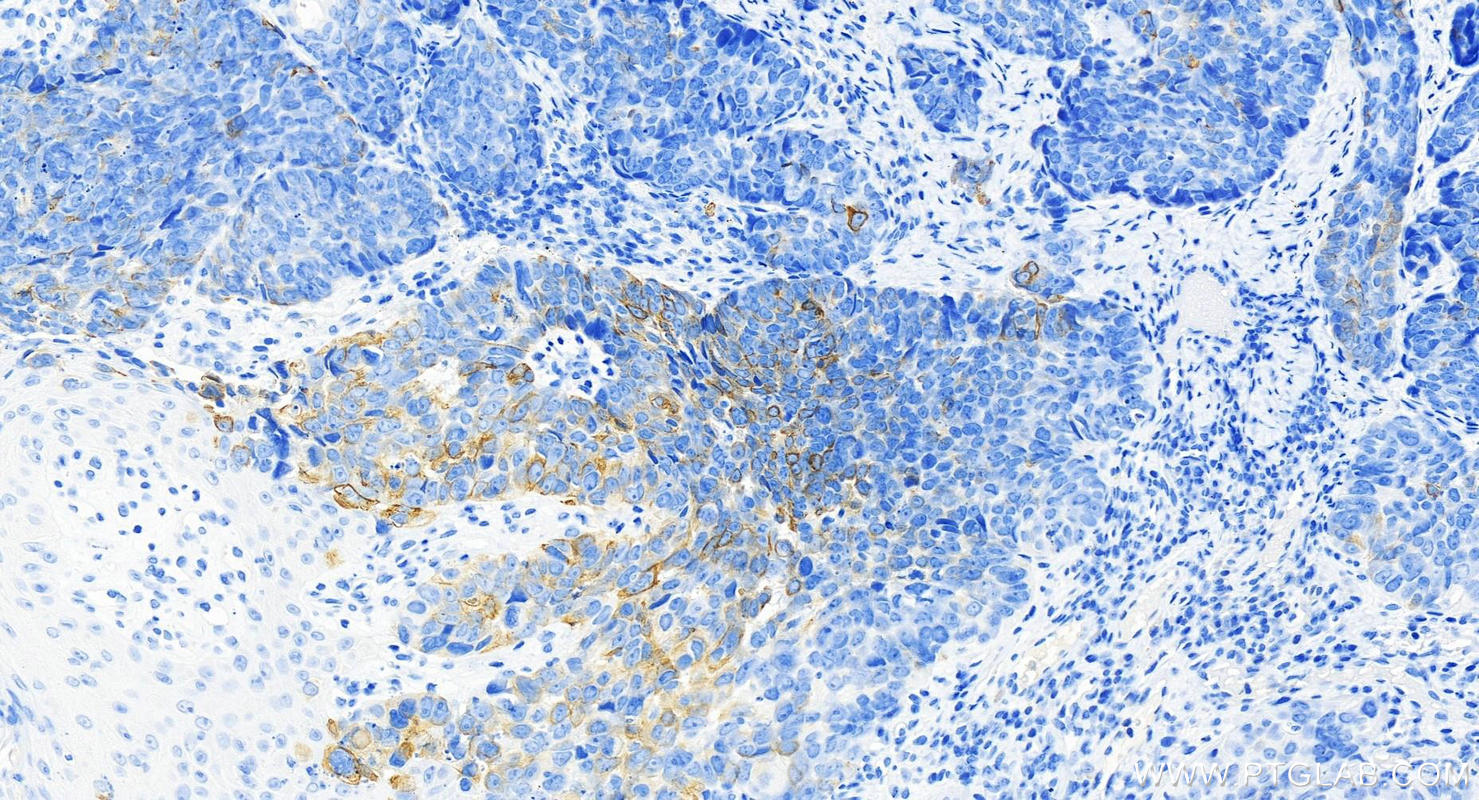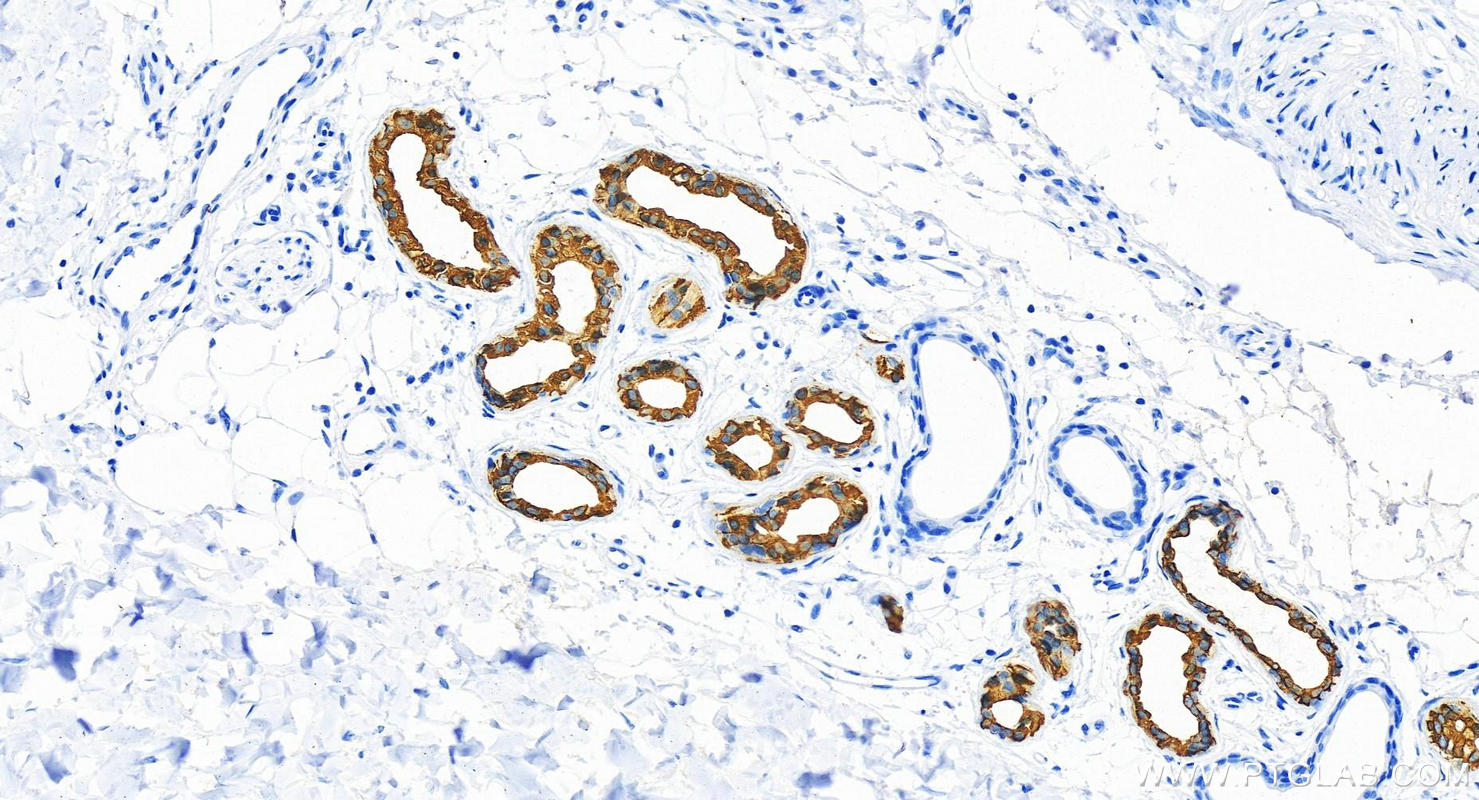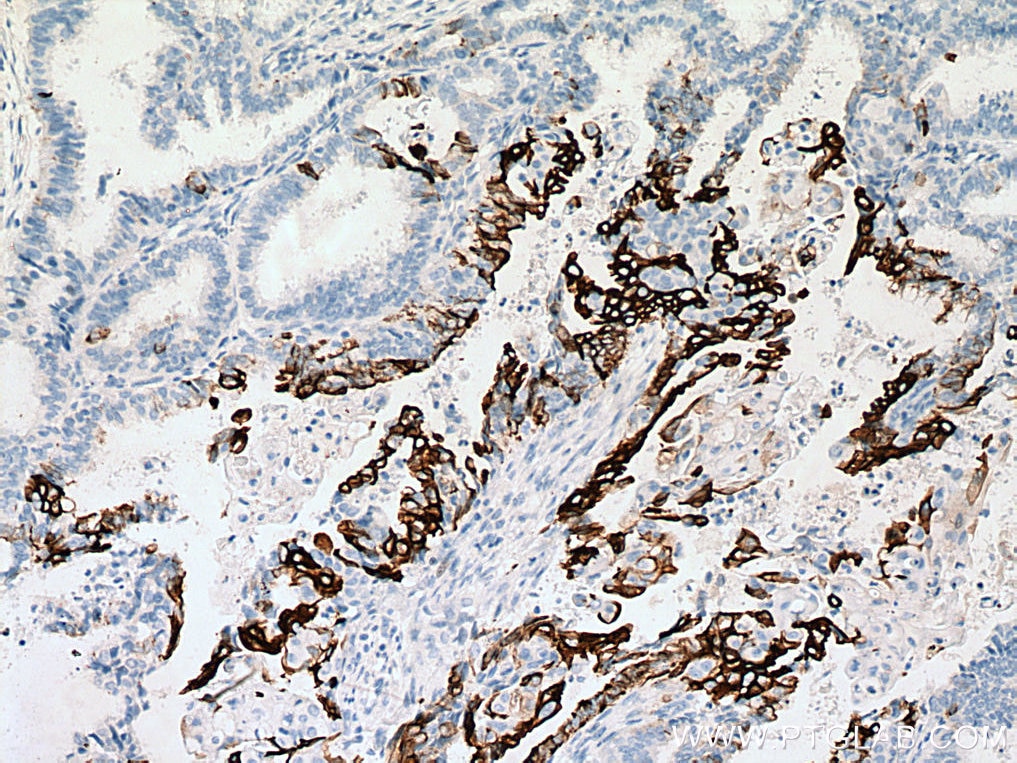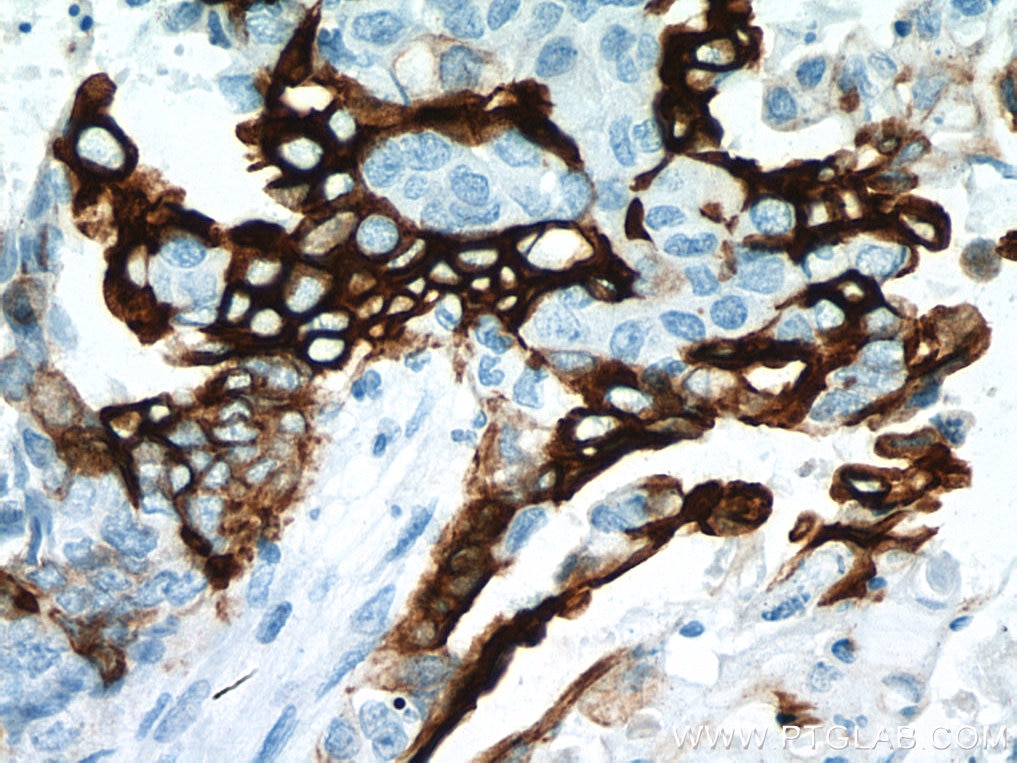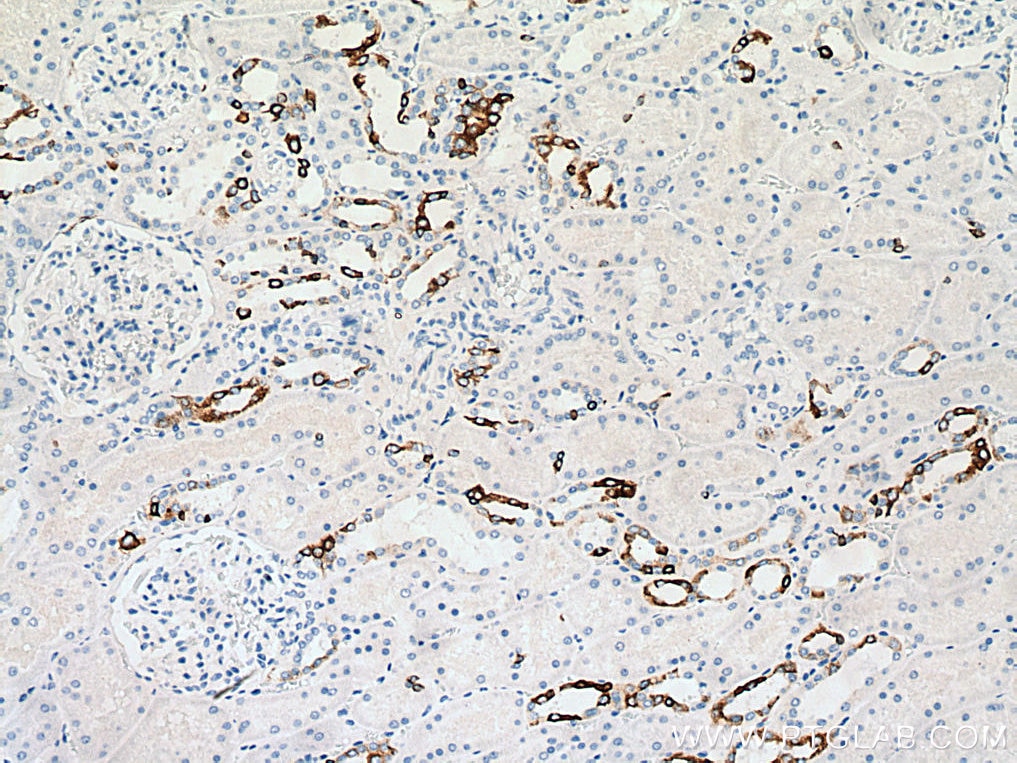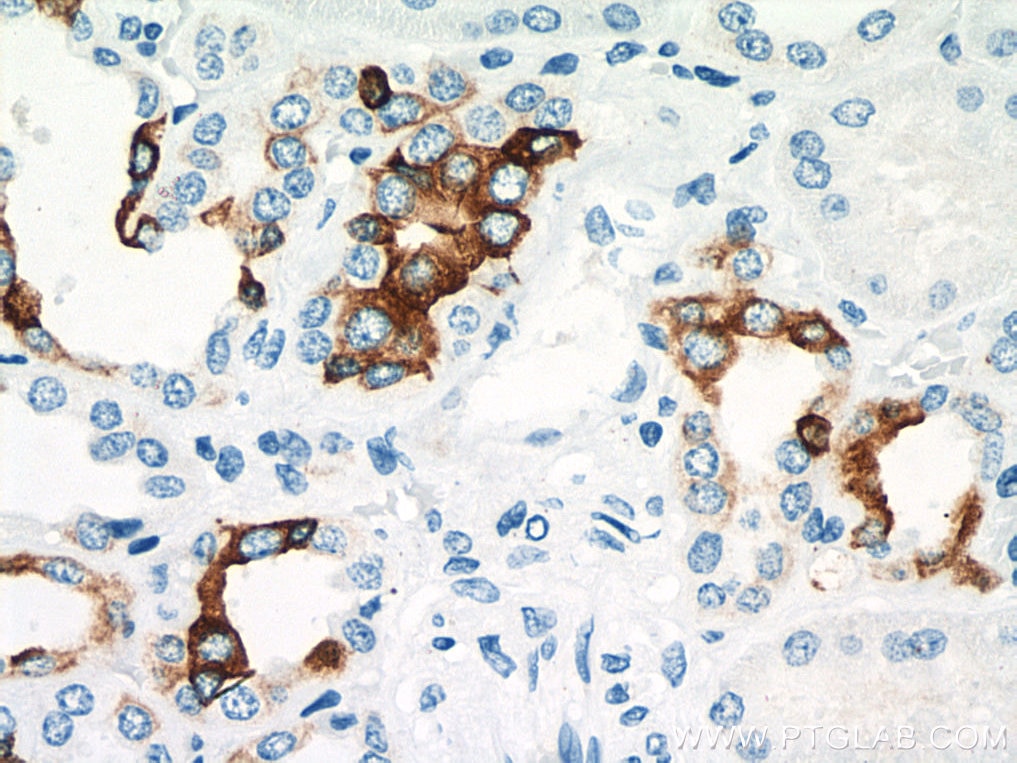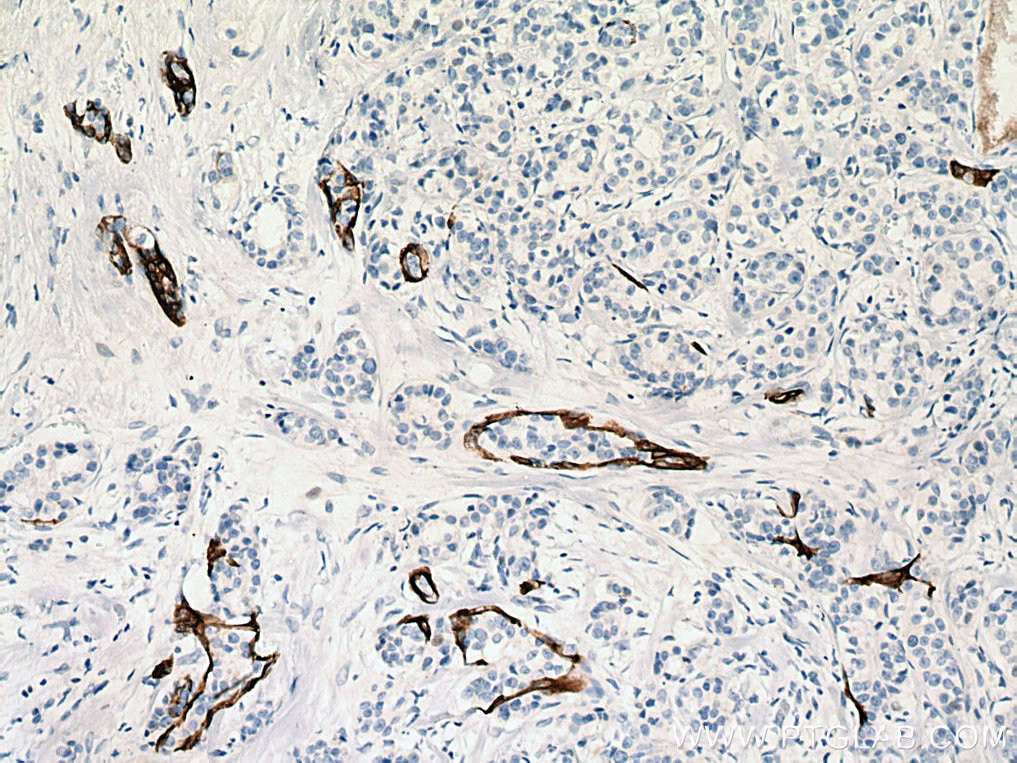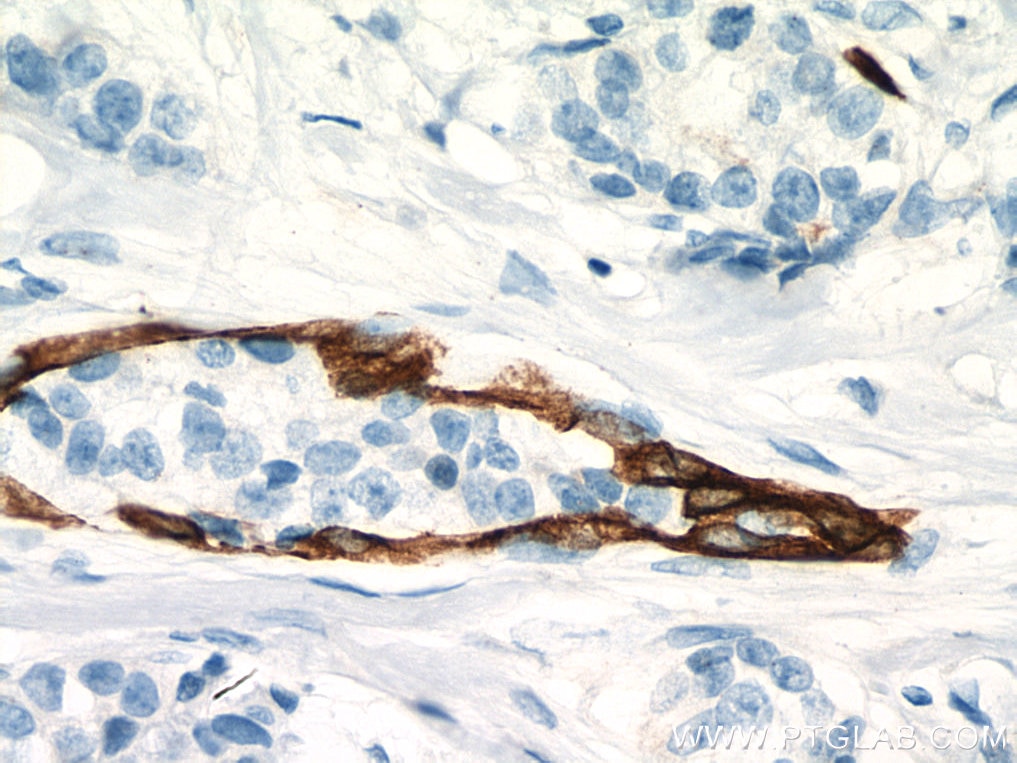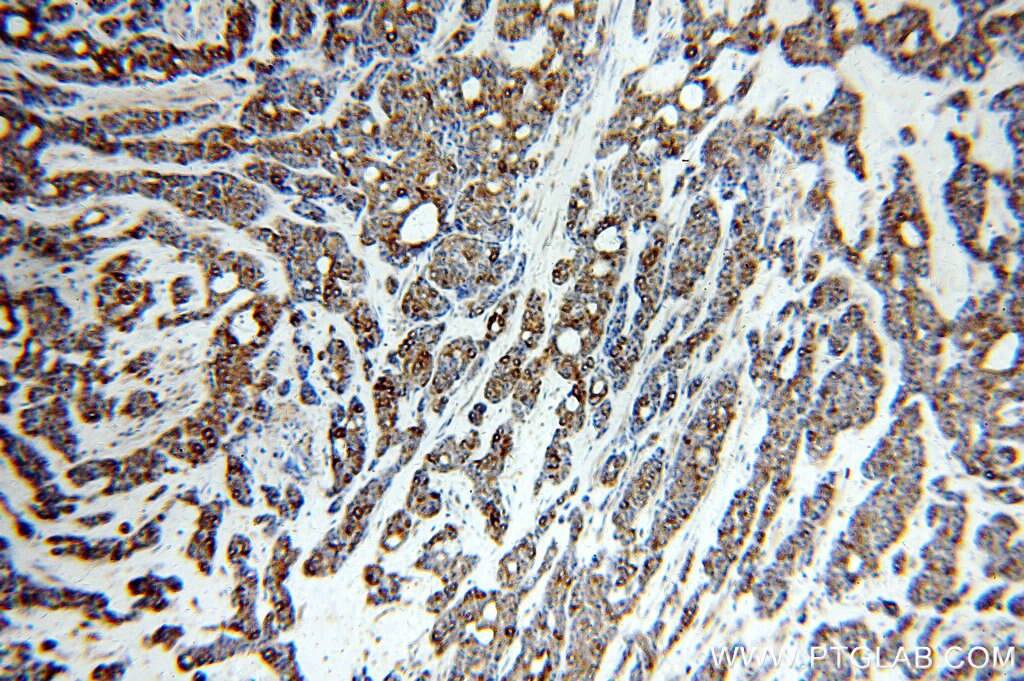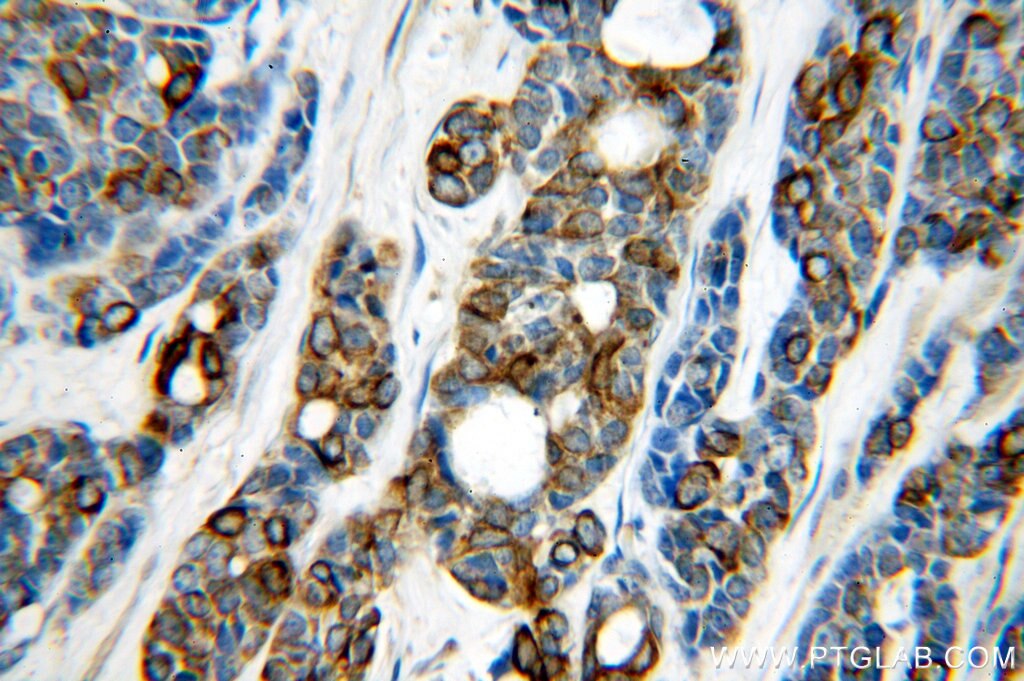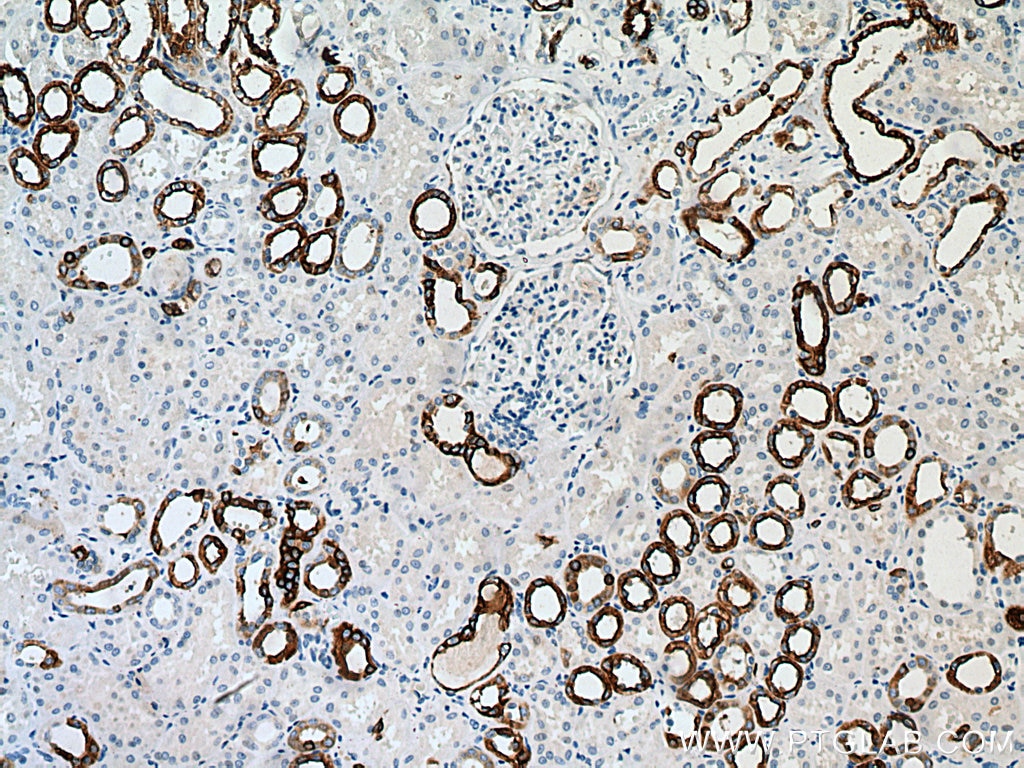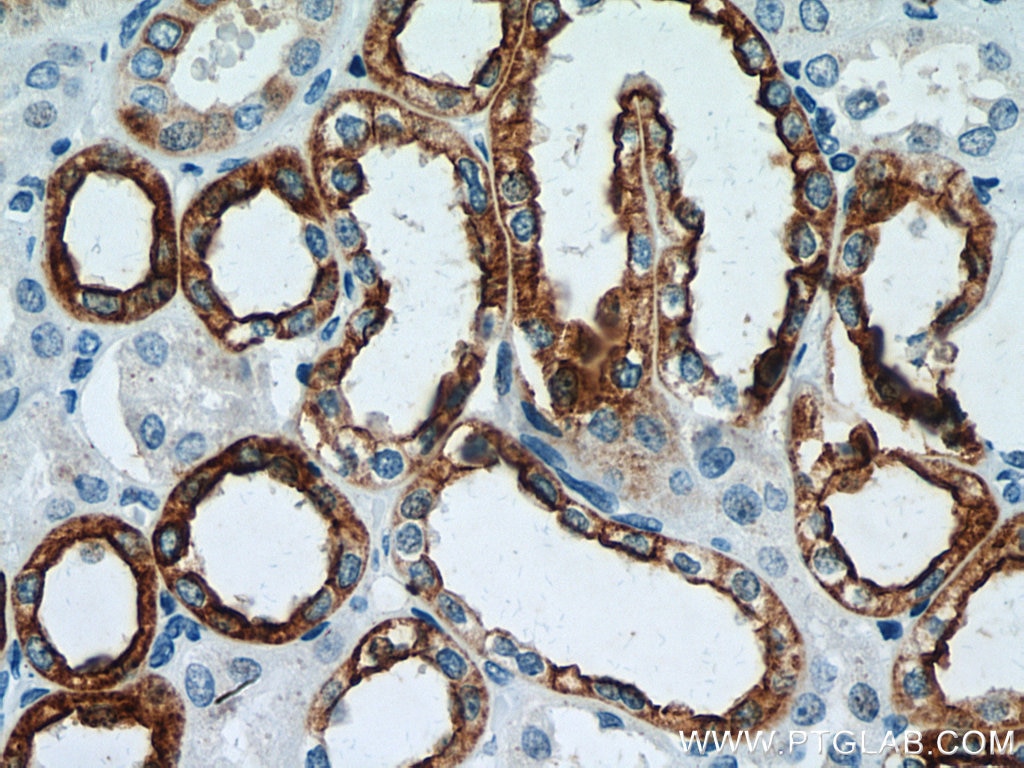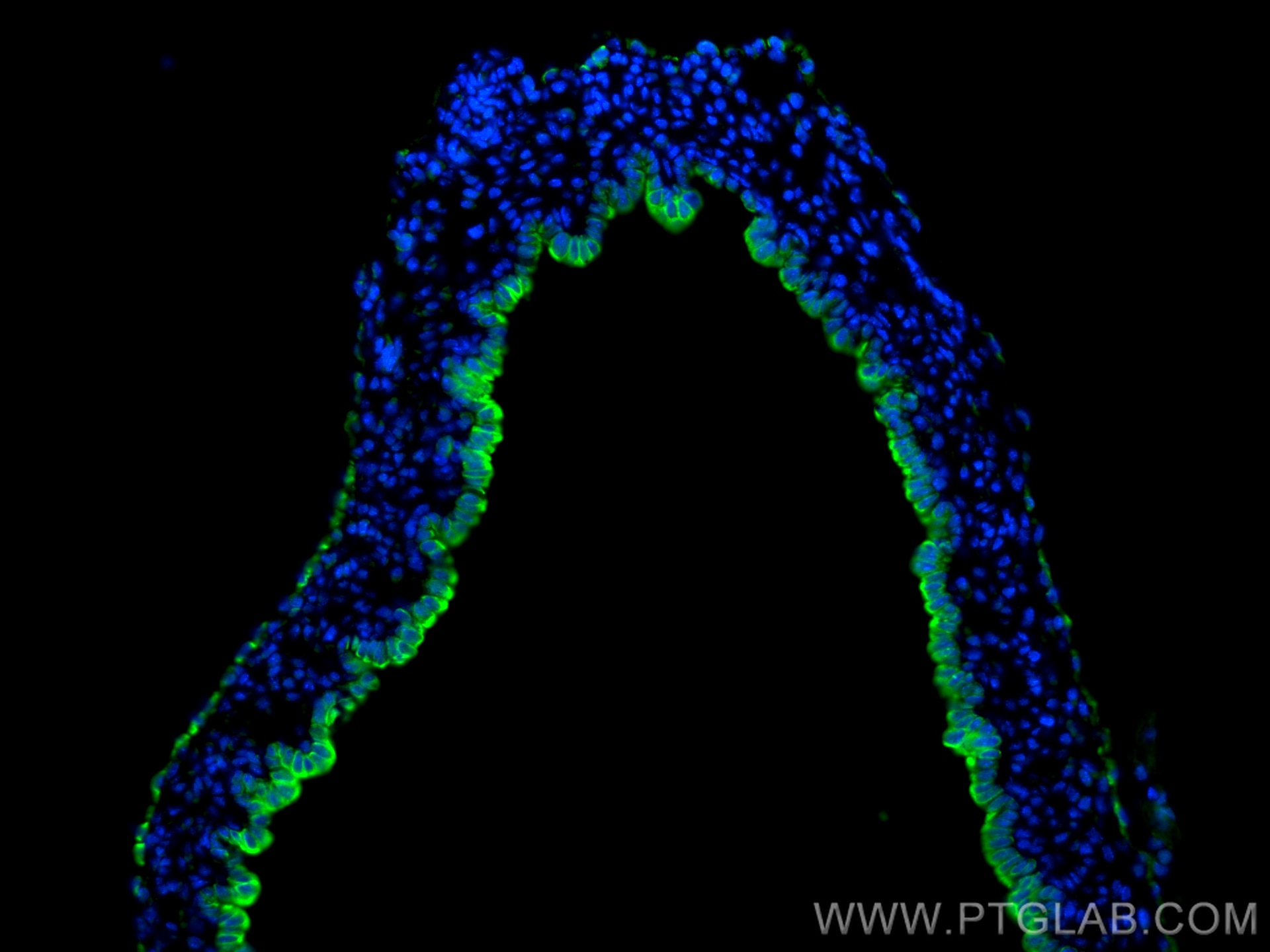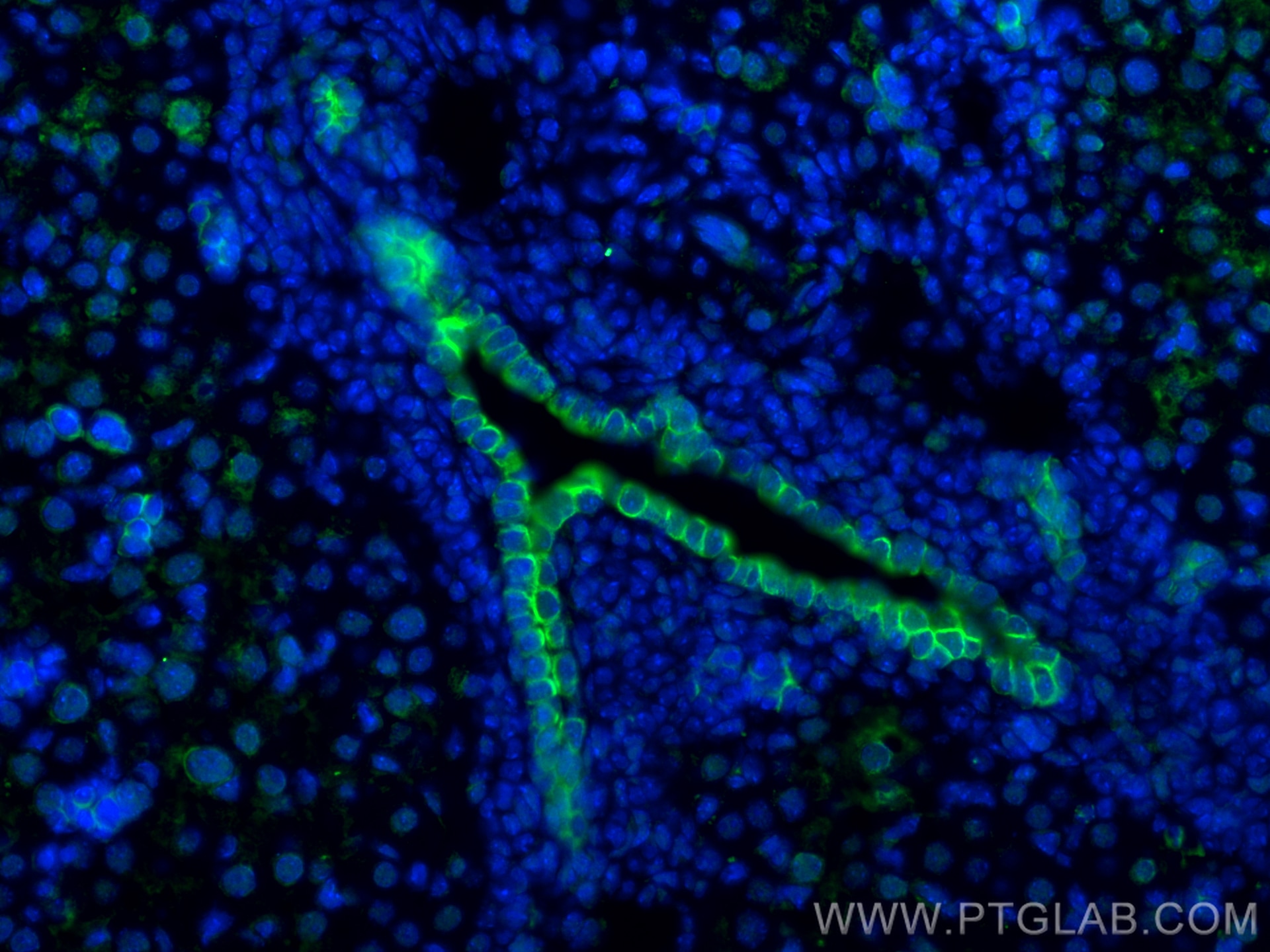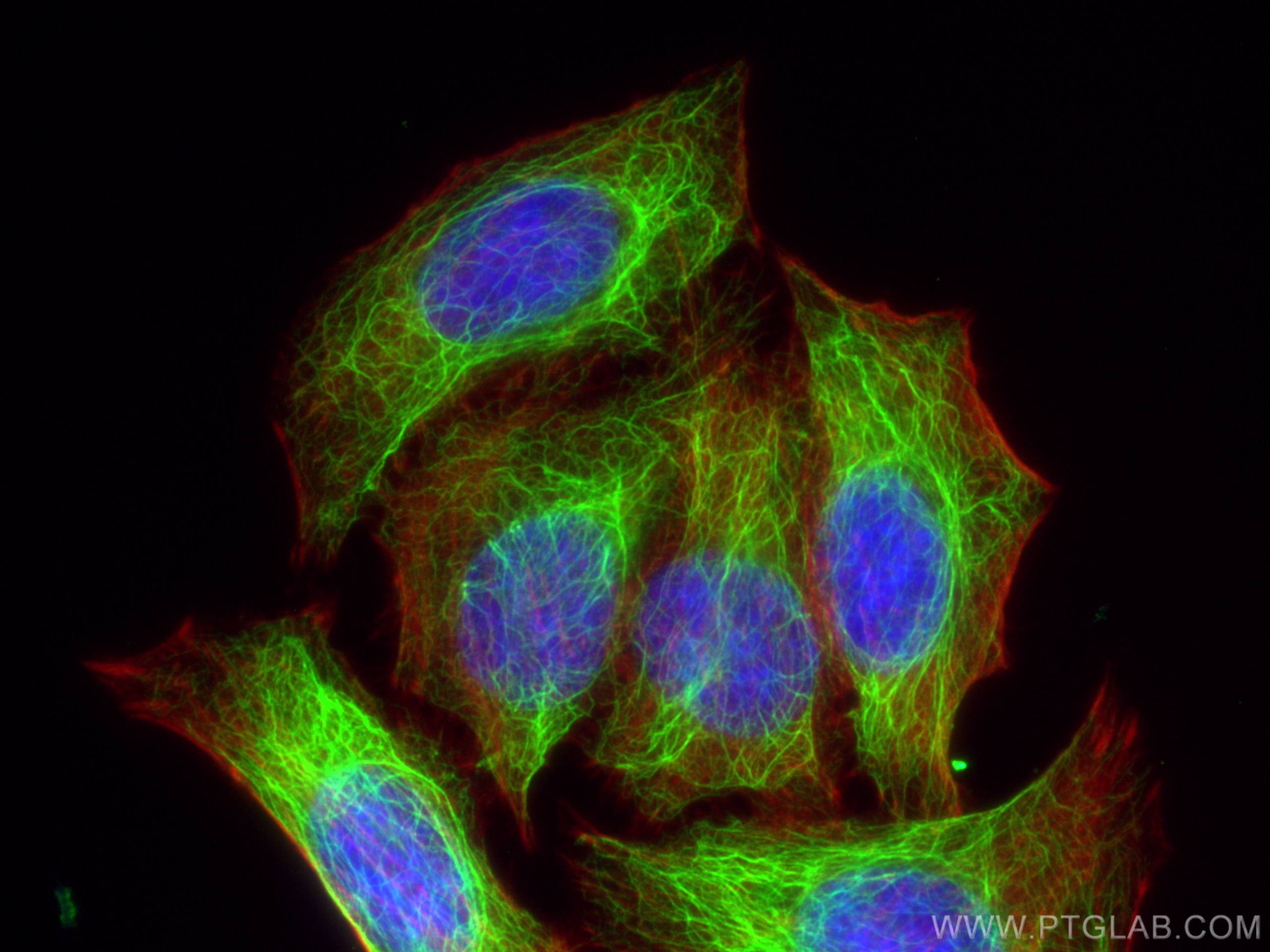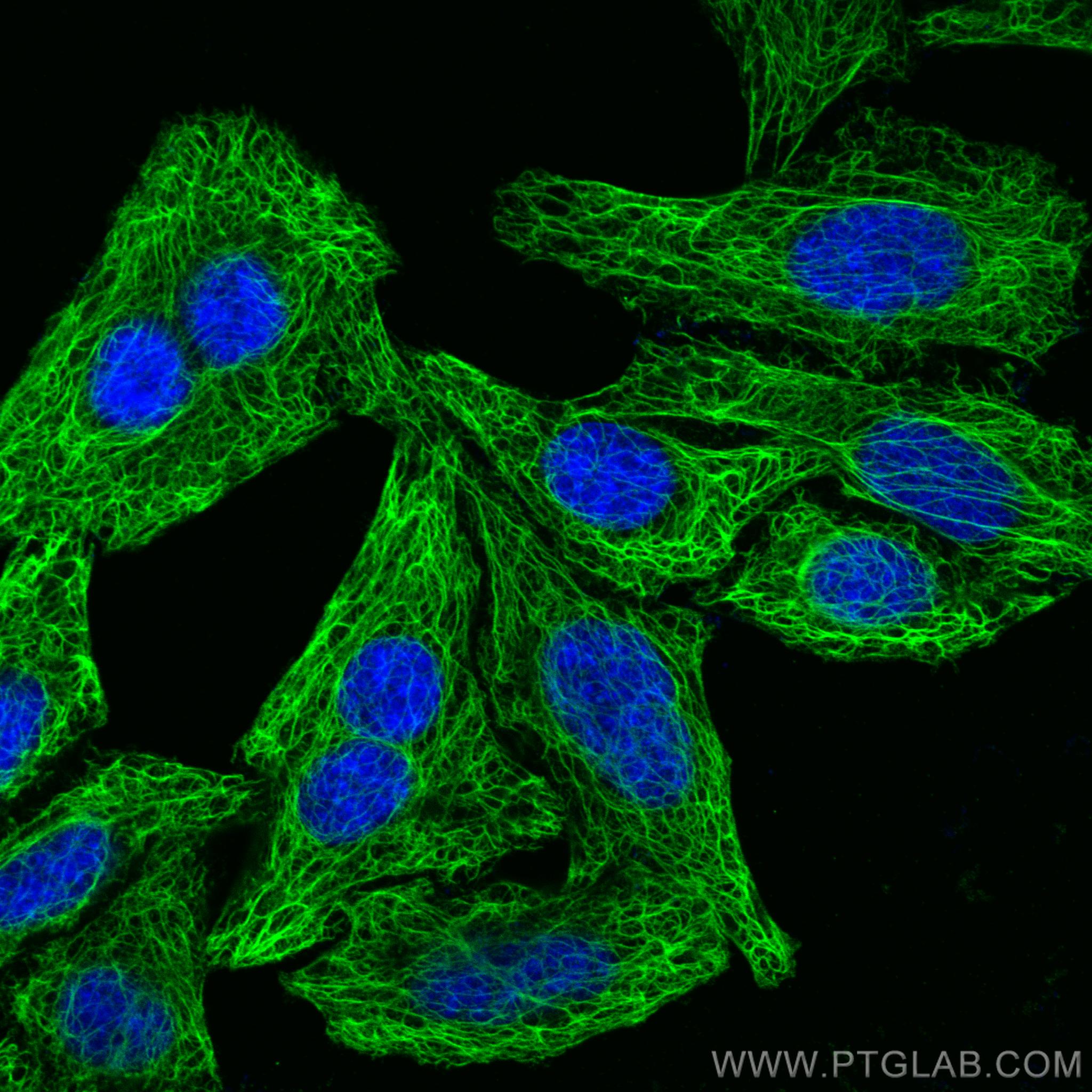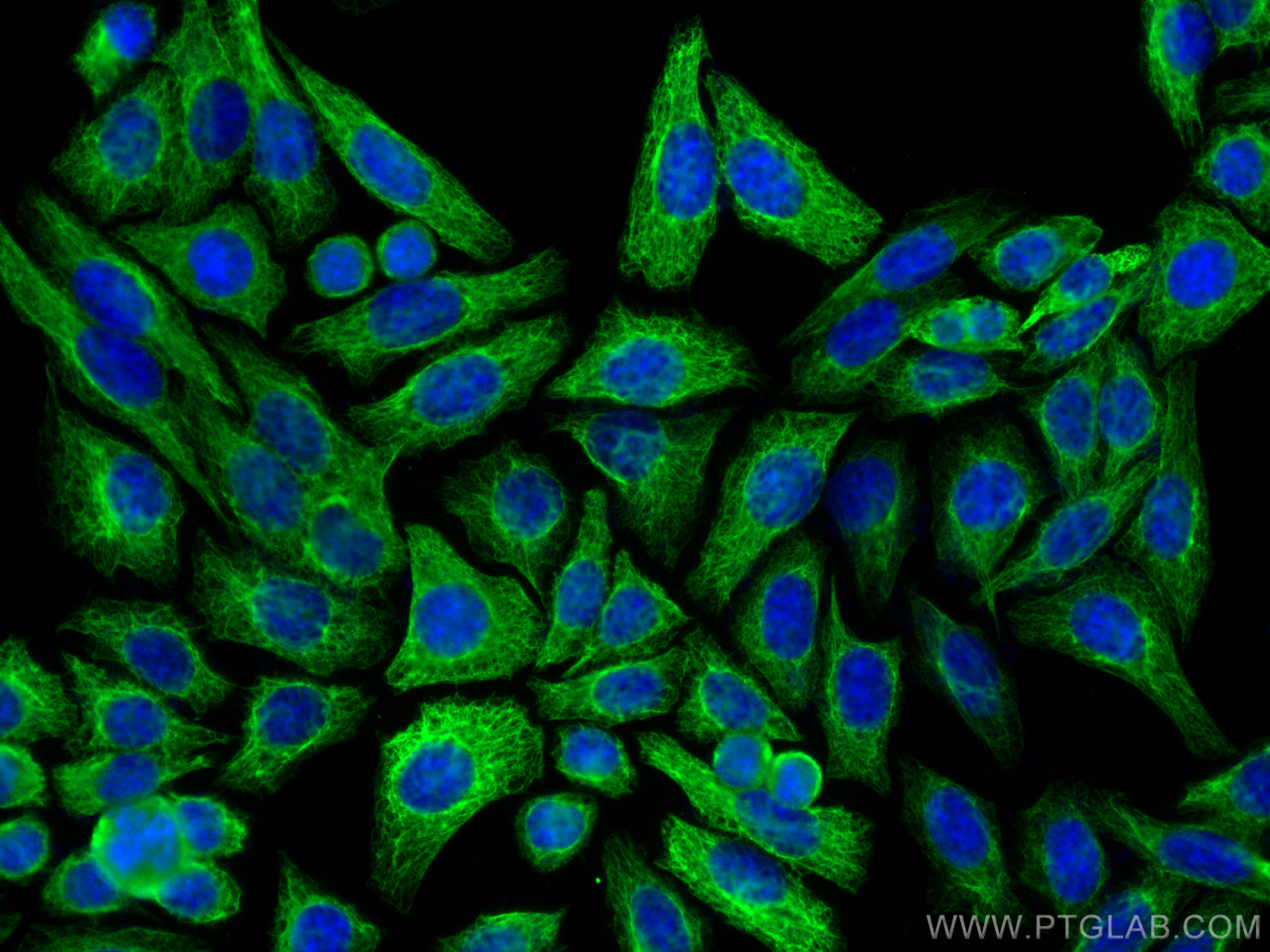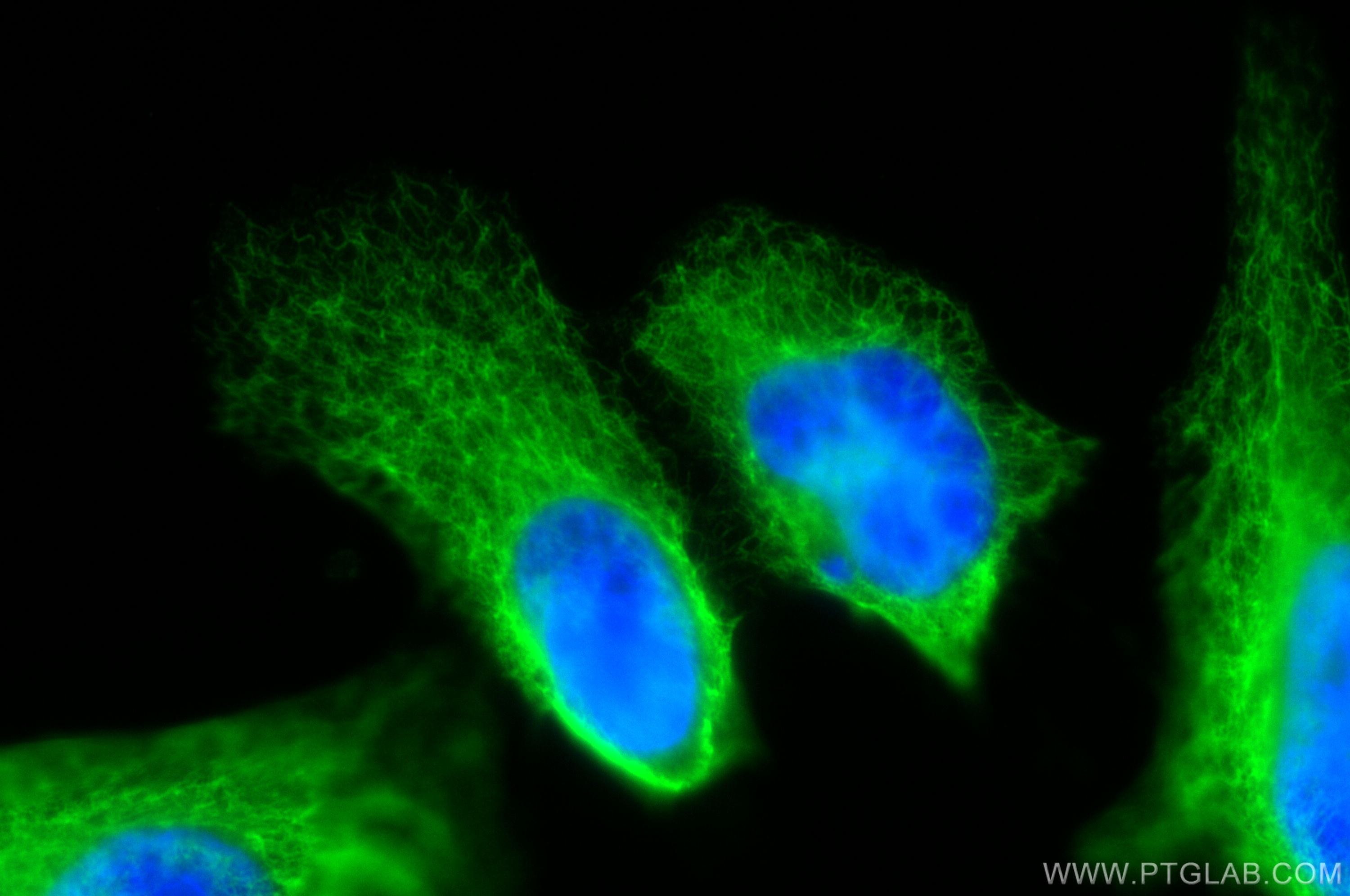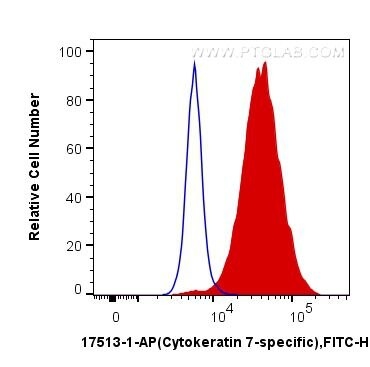- Featured Product
- KD/KO Validated
Cytokeratin 7-specific Polyklonaler Antikörper
Cytokeratin 7-specific Polyklonal Antikörper für WB, IHC, IF/ICC, IF-P, FC (Intra), IP, ELISA
Wirt / Isotyp
Kaninchen / IgG
Getestete Reaktivität
human, Maus, Ratte und mehr (1)
Anwendung
WB, IHC, IF/ICC, IF-P, FC (Intra), IP, ELISA
Konjugation
Unkonjugiert
Kat-Nr. : 17513-1-AP
Synonyme
Geprüfte Anwendungen
| Erfolgreiche Detektion in WB | A431-Zellen, HeLa-Zellen, Maus-Blasengewebe, Mauslungengewebe, Ratten-Blasengewebe, Rattenlungengewebe, T-47D-Zellen |
| Erfolgreiche IP | HepG2-Zellen |
| Erfolgreiche Detektion in IHC | humanes Lungenkarzinomgewebe, humanes Mammakarzinomgewebe, humanes Zervixkarzinomgewebe, humanes Nierengewebe, humanes Ovarialkarzinomgewebe Hinweis: Antigendemaskierung mit TE-Puffer pH 9,0 empfohlen. (*) Wahlweise kann die Antigendemaskierung auch mit Citratpuffer pH 6,0 erfolgen. |
| Erfolgreiche Detektion in IF-P | Mauslebergewebe |
| Erfolgreiche Detektion in IF/ICC | HeLa-Zellen, HepG2-Zellen |
| Erfolgreiche Detektion in FC (Intra) | HeLa-Zellen |
Empfohlene Verdünnung
| Anwendung | Verdünnung |
|---|---|
| Western Blot (WB) | WB : 1:10000-1:50000 |
| Immunpräzipitation (IP) | IP : 0.5-4.0 ug for 1.0-3.0 mg of total protein lysate |
| Immunhistochemie (IHC) | IHC : 1:1000-1:4000 |
| Immunfluoreszenz (IF)-P | IF-P : 1:200-1:800 |
| Immunfluoreszenz (IF)/ICC | IF/ICC : 1:50-1:500 |
| Durchflusszytometrie (FC) (INTRA) | FC (INTRA) : 0.20 ug per 10^6 cells in a 100 µl suspension |
| It is recommended that this reagent should be titrated in each testing system to obtain optimal results. | |
| Sample-dependent, check data in validation data gallery | |
Veröffentlichte Anwendungen
| KD/KO | See 1 publications below |
| WB | See 6 publications below |
| IHC | See 28 publications below |
| IF | See 28 publications below |
Produktinformation
17513-1-AP bindet in WB, IHC, IF/ICC, IF-P, FC (Intra), IP, ELISA Cytokeratin 7-specific und zeigt Reaktivität mit human, Maus, Ratten
| Getestete Reaktivität | human, Maus, Ratte |
| In Publikationen genannte Reaktivität | human, Maus, Ratte, Rind |
| Wirt / Isotyp | Kaninchen / IgG |
| Klonalität | Polyklonal |
| Typ | Antikörper |
| Immunogen | Peptid |
| Vollständiger Name | keratin 7 |
| Berechnetes Molekulargewicht | 51 kDa |
| Beobachtetes Molekulargewicht | 51 kDa |
| GenBank-Zugangsnummer | NM_005556 |
| Gene symbol | Cytokeratin 7 |
| Gene ID (NCBI) | 3855 |
| Konjugation | Unkonjugiert |
| Form | Liquid |
| Reinigungsmethode | Antigen-Affinitätsreinigung |
| Lagerungspuffer | PBS with 0.02% sodium azide and 50% glycerol |
| Lagerungsbedingungen | Bei -20°C lagern. Nach dem Versand ein Jahr lang stabil Aliquotieren ist bei -20oC Lagerung nicht notwendig. 20ul Größen enthalten 0,1% BSA. |
Hintergrundinformationen
Keratins are a large family of proteins that form the intermediate filament cytoskeleton of epithelial cells, which are classified into two major sequence types. Type I keratins are a group of acidic intermediate filament proteins, including K9-K23, and the hair keratins Ha1-Ha8. Type II keratins are the basic or neutral courterparts to the acidic type I keratins, including K1-K8, and the hair keratins, Hb1-Hb6. KRT7 is a type II keratin. It is specifically expressed in the simple epithelia lining the cavities of the internal organs and in the gland ducts and blood vessels. This antibody is specifically against KRT7.
Protokolle
| PRODUKTSPEZIFISCHE PROTOKOLLE | |
|---|---|
| WB protocol for Cytokeratin 7-specific antibody 17513-1-AP | Protokoll herunterladen |
| IHC protocol for Cytokeratin 7-specific antibody 17513-1-AP | Protokoll herunterladenl |
| IF protocol for Cytokeratin 7-specific antibody 17513-1-AP | Protokoll herunterladen |
| IP protocol for Cytokeratin 7-specific antibody 17513-1-AP | Protokoll herunterladen |
| STANDARD-PROTOKOLLE | |
|---|---|
| Klicken Sie hier, um unsere Standardprotokolle anzuzeigen |
Publikationen
| Species | Application | Title |
|---|---|---|
Transl Res SERPINA5 may promote the development of preeclampsia by disruption of the uPA/uPAR pathway. | ||
Clin Cancer Res Integrative Genomic Analysis of Gemcitabine Resistance in Pancreatic Cancer by Patient-derived Xenograft Models. | ||
Angiogenesis A novel lymphatic pattern promotes metastasis of cervical cancer in a hypoxic tumour-associated macrophage-dependent manner. | ||
Proc Natl Acad Sci U S A Up-regulation of CD81 inhibits cytotrophoblast invasion and mediates maternal endothelial cell dysfunction in preeclampsia. | ||
Cell Death Dis METTL14 contributes to acute lung injury by stabilizing NLRP3 expression in an IGF2BP2-dependent manner | ||
Cell Prolif Insufficient GDF15 expression predisposes women to unexplained recurrent pregnancy loss by impairing extravillous trophoblast invasion |
